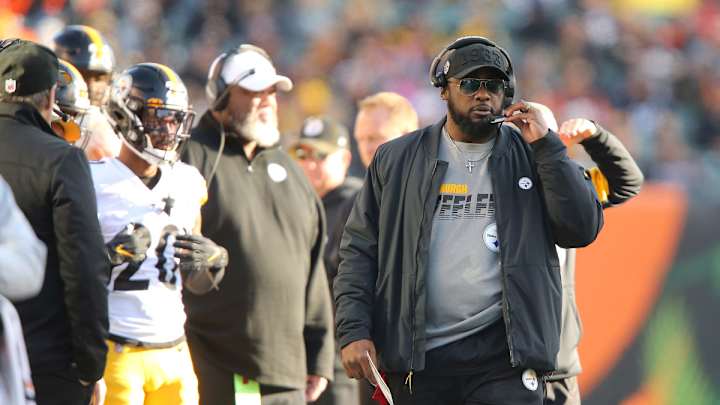Fixing The NFL's Diversity Problem Requires More Than Just The Rooney Rule

This week, the NFL took new steps to address what one league executive, Troy Vincent, called "a broken system" in regard to minority hiring. With just four head coaches and two general managers who are people of color, the NFL has an embarrassing lack of diversity in the leadership ranks of the league, in which about 70 percent of players are black. While the draft pick incentive proposal for minority hires was tabled, the league is implementing other measures, such as expanding the Rooney Rule to coordinator positions and club executive roles, prohibiting teams from blocking assistant coaches or personnel employees to interview for promotions, all 32 clubs hiring season long minority coaching fellows, and each team in the league developing diversity, equity and inclusion plans and holding bias training.
After the latest hiring cycle when the league continued a backwards trend in terms of people of color in leadership roles, this issue required immediate action. But ultimately fixing the NFL's diversity problem is up to owners and high ranking club executives confronting their own implicit and unconscious biases. Listen to black coaches describe what it's like to go into an interview knowing you're there to check the Rooney Rule box, but don't actually have the chance to get the job. Listen to black coaches explain how it feels to be asked in an interview about their hairstyle, or to be told they look too aggressive in a sport that usually celebrates aggressive play. Or to hear from a team executive that they knock the interview out of the park, but the owner was more comfortable with another candidate. These are all real experiences.
Herein is the key to changing the league's diversity problem, and it is a problem when a league is saying it wants the majority of people of color on the field, but not in leadership roles. To move forward the onus needs to be on team owners to educate themselves and be willing to acknowledge their own biases, and then work to correct them. Football has already missed out on a generation of black quarterbacks who were miscast and shuttled to other positions. Without a course correction, the game will also miss out on countless black coaches and general managers who've been working and waiting for an opportunity they fear will never come.
